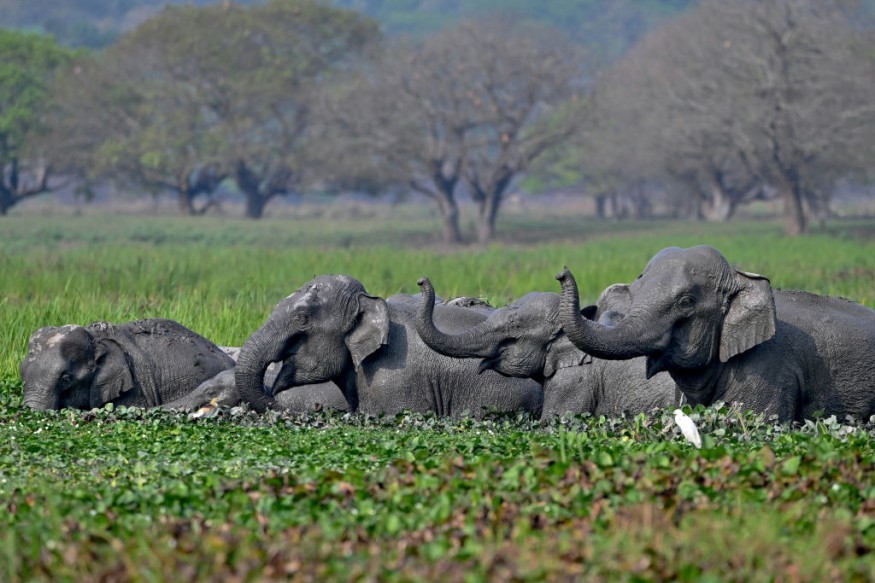Mother animals have shown significant importance for the environment and wildlife, nurturing and protecting their children.
Understanding the role of mom animals is essential to save them from potential threats and decline. Many animals, like orangutans and elephants, have suffered from population decline due to climate change and widespread habitat loss.
As Mother's Day begins, Nature World News (NWS) will unveil seven amazing mother animals in the animal kingdom.
1. Elephants

First on the list are elephants. Despite their gigantic appearance, they care for their calf or baby elephants. Reports reveal that female elephants serve as the leader of their group.
Elephants can produce the best milk for their babies, and they can change their diets for their survival, ensuring sufficient nutrients.
2. Orangutans
Next are the orangutans. People can mostly see the female orangutans with their young, which are carried or piggybacked for about two years. Female orangutans teach their young ways to survive in the wild potentially.
Having the strongest bond, the young orangutans stay with their mothers for six to seven years.
3. Cheetah
Mother cheetahs have unique ways of raising and protecting their litter or cubs. As excellent hunters, cheetahs understand that the cubs are vulnerable to predation. To ensure their safety, their mothers move them to different locations, preventing possible tracking by other animals.
While with their mothers, they learn ways to hunt. After 18 months, the mother cheetah and her cubs separate ways.
4. Emperor Penguins
Emperor penguins are amazing parents. When the female penguin lays an egg, the male penguin protects it from possible threats. Additionally, the mother goes to the extra mobile to look for food and returns to give the chick the needed warmth.
5. Alligators
From afar, alligators seem formidable animals with strong teeth, but they are gentle mothers. Before she lays eggs, the mother alligator looks for different sticks or plants, establishing a nest for her babies. This nest is crucial to protecting her eggs and providing warmth.
Alligators are always alert for possible predators that can attack their eggs. Female alligators can be aggressive when their babies are threatened.
6. Giant Pacific Octopus
In deep waters, the Giant Pacific Octopus lives a short lifespan but is creative in nurturing their eggs. According to a report, the octopus can lay up to 50,000 eggs. The mom octopus hides in safe areas and protects eggs for up to six months. The octopus sacrifices her need for food and prioritizes hatching her young.
7. Giraffe
Giraffe calves are mostly threatened by predation, and they could likely die from attacks from hyenas and other animals. While looking for food, giraffe mothers are alert and protective of their young giraffes
Related Article : Top 6 Unique Slowest Animals From Giant Tortoise to Three-Toed Sloth
For more similar, don't forget to follow Nature World News
© 2026 NatureWorldNews.com All rights reserved. Do not reproduce without permission.





